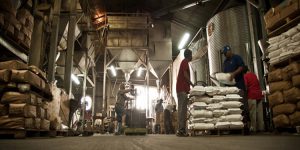
Mr Williams Adum, the Municipal Chief Executive (MCE) for Kassena-Nankana Municipal, said the factory will facilitate value addition as well as increase rice production in the region.
According to a report by Ghana News Agency, despite having huge production potential, farmers in the Kassena-Nankana Municipal in the Upper East Region have been grappling with production challenges mainly due to lack of a processing facility.
Mr Williams highlighted that in addition to value addition, the factory will also attract more investments into the value chain and subsequently create the much needed employment.
Local administrators in the region have commended the intitiative under the government’s industrialization agenda highlighting that it will also boost marketing of the commodity.
Government through the Ghana Commercial Agriculture Project (GCAP) in partnership with USAID, among other financial partners, have also signed Memorandum of Understanding with a Chinese Company to rehabilitate the laterals of the Tono Irrigation Dam aimed at boosting rice and cereal farming.
MoFA to reinforce farmers under Special Rice Initiative Project. The Ministry of Food and Agriculture (MoFA) under the Planting for Food and Jobs (PFJs) is set to support farmers to go into rice farming as part of the government’s Special Rice Initiative Project this year.
According to Mr Seth Osei-Akoto, director at MoFA, this is part of the government initiative to empower many producers as the country seeks to become self-sufficient in rice production by the year 2024.
“The government through the ministry has already started bringing into the country some of these state-of-art farming machines to help ensure that Ghana becomes self-sufficient in rice production come the year 2024,” he affirmed.
The Upper East Regional Minister, Ms Paulina Patience Abayage, disclosed that the initiative is also set to get support from the Africa Development Bank to facilitate maize and soya beans production.
Among the major crops targeted under the Planting for Food and Jobs (PFJs) initiative include maize, sorghum, soya beans and rice which also aims at improving on the nutritional status and contributing to food security.
